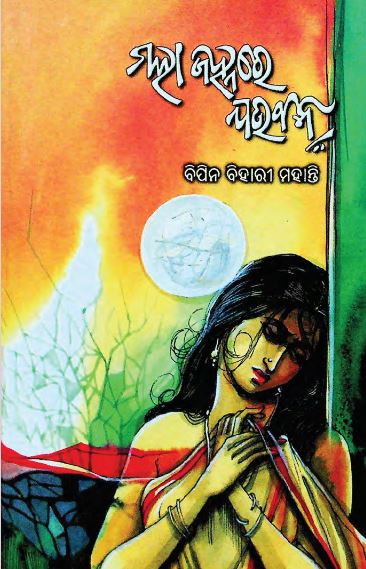Malajahnare Jaubana, penned by acclaimed Odia playwright Bipin Bihari Mohanty and published in 2007, is a poignant and compelling work that exemplifies the rich theatrical tradition of Odisha. This drama intricately weaves social themes with profound emotional depth, showcasing the complexities of human relationships, societal norms, and the quest for identity in a changing world.
Set against the backdrop of contemporary Odia society, “Malajahnare Jaubana” explores the life of its protagonist, Mala, a young girl navigating the tumultuous waters of adolescence. The title, which translates to “The Blooming of Mala,” symbolizes not only her coming of age but also the myriad challenges and expectations placed upon young women in society. Through Mala’s journey, Mohanty addresses critical issues such as gender roles, societal pressures, and the struggle for personal autonomy.
The drama opens with a vivid portrayal of Mala’s family life, underscoring the weight of traditional expectations on her shoulders. As the daughter of a conservative household, she grapples with conflicting desires: the longing for personal freedom and the obligation to conform to societal norms. This dichotomy serves as a central theme throughout the play, reflecting the broader struggle faced by many in a society steeped in tradition yet inching towards modernity.
Mohanty’s writing is rich with relatable characters, each contributing to the thematic tapestry of the drama. The audience encounters a cast that includes nuanced figures such as Mala’s mother, who embodies traditional values; a supportive father who struggles with balancing tradition and progressive ideas; and friends who represent varying perspectives on love, ambition, and gender equality. These characters engage in dialogues that resonate with viewers, inviting them to reflect on their own experiences and societal conditioning.
One of the standout features of “Malajahnare Jaubana” is its use of sub-drama, a powerful device that allows for deeper exploration of its themes. Through interludes and dialogues that break from the main narrative, the playwright introduces subplots that illuminate critical social issues. For instance, discussions about educational opportunities for girls, the stigmatization of single women, and the challenges of pursuing passion in a patriarchal society create a layered narrative that invites dialogue and introspection.
The dramatic tension in “Malajahnare Jaubana” builds as Mala increasingly asserts her desire for independence. The climax of the play arrives during a pivotal confrontation where Mala boldly articulates her aspirations and challenges the constraints imposed upon her. This moment is not just a personal victory but a reflection of the collective struggles faced by women in similar circumstances, rendering the drama both specific to the Odia context and universally relatable.
Bipin Bihari Mohanty’s masterful use of dialogue, rich imagery, and cultural references creates an engaging and thought-provoking experience for the audience. The play balances humor and poignancy, making it accessible while addressing complex social issues with sensitivity and depth.
In conclusion, “Malajahnare Jaubana” stands out as a significant contribution to Odia literature and drama, shedding light on the transformative journey of a young woman amidst societal expectations. Bipin Bihari Mohanty’s adept storytelling not only entertains but also stimulates critical conversations about gender, identity, and the evolving landscape of Odia society. The play ultimately serves as a reminder of the power of self-discovery and the importance of challenging norms in the pursuit of personal freedom and fulfillment.
Books Info
| Books name | Malajahnare Jaubana |
| Author | Bipin Bihari Mohanty |
| No Of pages | 294 |
| Publisher | Smt Nilima Mahanty |
| Publication | 2007 |
| Printed At | Kalyani |
| Distributor | Lipika |

